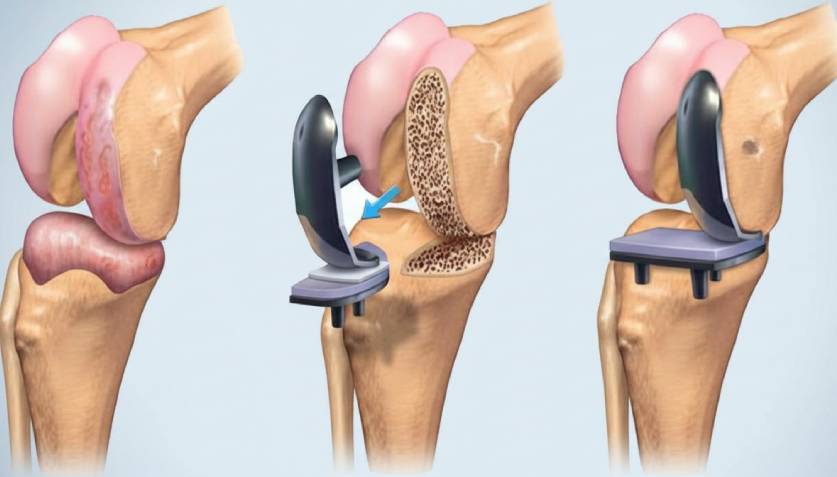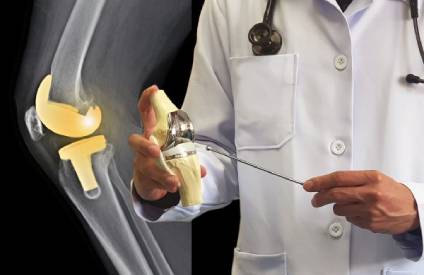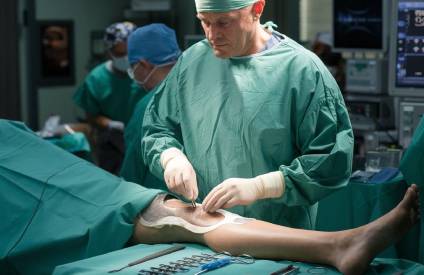
Restoring Mobility and Quality of Life with Advanced Orthopaedic Care
Joint pain and mobility issues can greatly impact daily life. Many of my patients come to me after months or years of discomfort due to arthritis, trauma, or degenerative joint conditions. My goal is always simple — to restore your joint function, relieve pain, and help you regain an active lifestyle.
With modern techniques in joint replacement and revision surgery, we can replace damaged joints in the hip or knee with high-precision implants. These procedures are designed to reduce recovery time, restore mobility, and improve overall quality of life.
Understanding Joint Replacement & Revision Surgery
Joint replacement surgery involves removing a damaged joint and replacing it with an artificial implant to restore function. Revision surgery is performed when a previous joint replacement wears out, becomes loose, or causes pain.
These surgeries are often recommended after conservative treatments like medications, physiotherapy, or injections have not provided sufficient relief. My approach is always personalized, ensuring the best implant and technique are selected for your unique needs.
Key Benefits
- Reduces chronic joint pain and stiffness
- Restores mobility and daily function
- Improves overall quality of life


Hip Joint Replacement Surgery
Hip joint replacement surgery is ideal for patients suffering from osteoarthritis, avascular necrosis, or traumatic injuries. During the procedure, the damaged hip joint is replaced with a durable prosthesis to restore smooth motion.
Modern hip replacement techniques ensure minimal tissue damage and faster recovery. Many patients return to walking, climbing stairs, and daily activities much sooner than with older surgical methods.
Advantages of Hip Replacement
- Long-lasting pain relief and improved mobility
- Quick recovery with minimally invasive approaches
- High success rates for restoring normal hip function
Knee Joint Replacement Surgery
Knee joint replacement is commonly recommended for patients with severe arthritis, ligament injuries, or knee deformities. The damaged joint surfaces are replaced with artificial components to restore alignment and function.
Both total and partial knee replacements are available, depending on the extent of joint damage. Modern techniques reduce post-operative pain and shorten hospital stays, allowing patients to return to normal activities faster.
Benefits of Knee Replacement
- Reduces chronic knee pain and inflammation
- Restores normal knee movement and strength
- Improves overall daily activity and independence
Revision Joint Replacement Surgery
Revision surgery is necessary when a previous joint replacement fails due to wear, loosening, infection, or fracture. This procedure removes the old implant and replaces it with a new, more stable one.
Revision surgeries require careful planning and advanced surgical techniques to ensure long-term success. My approach focuses on restoring function, minimizing complications, and providing a smooth recovery for every patient.
Why Revision Surgery is Important
- Corrects issues from previous joint replacements
- Restores stability and reduces pain
- Enhances long-term mobility and joint health
Preparing for Joint Replacement Surgery
Before surgery, a thorough assessment is performed, including X-rays, MRI scans, and blood tests. I discuss the type of implant, surgical approach, and expected recovery timeline to ensure patients are fully informed.
Preoperative physiotherapy and planning help patients regain strength and prepare for a faster recovery. I also provide detailed instructions on diet, medications, and activity restrictions before the procedure.
Preparation Steps Include
- Comprehensive pre-surgery evaluation and imaging
- Discussion of implant options and surgical plan
- Preoperative exercises to strengthen joints
Recovery After Joint Replacement Surgery
Recovery varies depending on the joint and patient’s overall health. Most patients begin walking with support within a day or two and continue physiotherapy for several weeks. Full recovery often takes 6–12 weeks.
Following post-operative care, including exercises and lifestyle modifications, ensures long-term success and joint longevity. I work closely with patients to monitor progress, manage pain, and optimize rehabilitation
Recovery Tips
- Begin physiotherapy exercises as recommended
- Avoid heavy lifting and high-impact activities initially
- Attend regular follow-ups for optimal joint health
When to Consider Joint Replacement Surgery
I recommend joint replacement when pain interferes with daily activities, conservative treatments fail, or there is significant joint damage visible on imaging. Early intervention prevents further deterioration and improves long-term outcomes.
Patients with severe arthritis, post-traumatic joint damage, or avascular necrosis are ideal candidates. Every case is evaluated individually to ensure surgery is necessary and the best approach is chosen.
You Might Need Surgery If
- Chronic pain limits walking or daily tasks
- Non-surgical treatments have failed
- Imaging shows severe joint degeneration
Conclusion – Restore Mobility and Live Pain-Free
Joint replacement and revision surgeries offer a life-changing solution for patients with severe joint pain or dysfunction. My focus is always on personalized care, precision surgery, and optimal recovery to help patients regain independence.
If you are experiencing joint pain or considering hip or knee replacement, let’s discuss the best treatment options for your condition. Together, we can plan a safe and effective path to restored mobility and a pain-free life.

